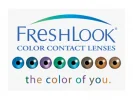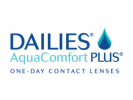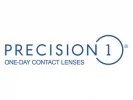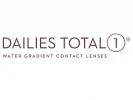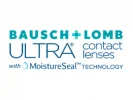Whether you’re considering contact lenses for a clinical reason or just because you want to be free of spectacle wear, we’re here to care for you on your journey.
Our team will guide you through every stage, from identifying the most appropriate contact lens, to teaching you how to apply and remove them safely, to managing your prescription, to guiding you through the ongoing care required to ensure you can wear lenses comfortably and safely for life.
Are contact lenses safe?
Modern contact lenses are very safe, as long as you follow your optometrist’s advice about how to wear and look after them, and have regular check-ups.
However, it is possible that anything that touches your eye could cause an infection. To reduce the chance of infection you should:
- always wash and dry your hands before touching your eyes or your contact lenses;
- never rinse or store your lenses in tap water because this could cause a very serious eye infection;
- avoid showering while wearing your contact lenses; and
- if you use reusable lenses, you will need to use special solutions to clean and disinfect them so that they are safe to put back into your eyes.
Am I too old/young to wear contact lenses?
No, age should not be a barrier when it comes to contact lens wear. There are a wealth of lens options to choose from and, with our guidance, we’ll match you to your perfect lens, whatever your age or visual needs.
Which type of contact lens is best for me?
There are two main types of contact lenses:
- soft lenses which mould to the shape of your eye; and
- rigid gas-permeable lenses (RGP lenses) which fit close to the shape of your eye, and are much less flexible than soft lenses.
The best contact lens for you will depend on several things, including how often you wish to wear them.
Our Optometrists will be able to guide you through this process, and help you choose the most suitable lens.
Do I need to have regular check-ups if I wear contact lenses?
Yes. It is important to have regular check-ups to make sure that your contact lenses are still suitable for you, and are not damaging your eyes.
Our optometrists will recommend how often you need to have check-ups. This will depend on things such as the type of lenses you wear and how long you wear them for.
Your contact lens prescription will have an expiry date. You will not be able to buy lenses after that date. It is important that you have a contact lens check-up before your prescription runs out if you want to continue to buy lenses.
Can I get a contact lens lost behind my eye?
No, this is a common misconception. The front of the eye and underside of the eyelid are covered by a thin membrane called the ‘conjunctiva’ which physically prevents this from happening.
Can I still wear makeup?
Yes you can, it is best to apply your lenses before putting your make-up on, and remove them before taking off your make-up. We can even recommend a range of eye care cosmetics specifically designed to compliment contact lens wear.
Can I swim in contact lenses?
We do not recommend swimming in contact lenses. This is because there is an organism that lives in water (acanthamoeba) that can cause a very serious infection if it gets in your eye. If you need glasses and want to see clearly while you are swimming, we recommend prescription swimming goggles.
Can I sleep in contact lenses?
There are certain types of lenses which have been designed to wear overnight.
However, unless you have been specifically told by your optician that you can, you shouldn’t sleep or nap in your lenses. Research has shown that sleeping in contact lenses increases the risk of infection.
If you are short-sighted, you may be able to wear special contact lenses that you sleep in. These temporarily correct short-sightedness so that you do not need to wear glasses or contact lenses during the day. This is called orthokeratology.
Can I recycle my contact lenses?
Brands We Stock




